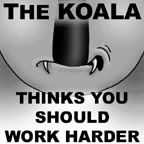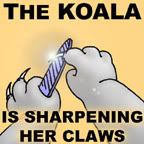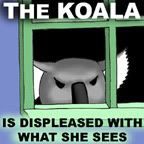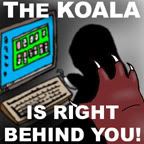Writing stats for the past fortnight
New words: 0
Editing The Woman in the Wall: 0
Re-editing Maureen: 0
New novel research: 0
Critiquing: 170,000
Clever readers will notice that over the last fortnight I haven't written a word. I've devoted my writing time to critiquing. Why do that, when I could be massaging my magnum opus to splendid completion? (Robin, don't overthink that remark...)
I've got heaps of answers to that question, all personal, all right for me. Your answers may be different. If you critique at all. So my first question to you is, do you critique others' work? If not, why not - and if so, what do you get out of it?
1. Procrastination. (Yup.)
2. Helping others. (Seriously. I was a good little Brownie.)
3. Earning critiques back. (You knew there had to be some self-interest in there.)
4. Comparing my writing to others. (Not in a competitive way, but it's interesting to see other unpublished works - in the raw, before agents/editors refine them (or not, as the case may be) for print.)
5. The pleasure of getting to read something different from what I would usually read. (That sentence sounds ungrammatical. Fix it if you can.)
6. Learning from others. (When I look closely at others' work I see errors or naughty writing habits I don't always see when I read 'normally', and I can bear these in mind when I'm reading/writing my own work (cut out those adverbs!))
Subscribe to:
Post Comments (Atom)












12 comments:
Yep. Yep. Yep. Yep. Yep. (How many were there?)
Agree with you completely. I also critique and/or edit as I read no matter what I'm reading. I'm not sure if it's a compulsion or it's because I love it. Both probably.
And my writing has always improved tremendously through the critiquing process which included giving and getting critiques.
I think it might be like dancing. If you really want to know how to be a good leader, learn how to follow that way you understand exactly what works and doesn't work from the other POV.
My answer is "all of the above." I've learned a huge amount from critiqueing and being critiqued. And I've read some fantastic stories as bonus.
I've been racking up some serious critique debts over the last few weeks, and I'm always glad to return the favour. I'm very fortunate in that the three people who have helped me out most recently critique in quite different ways - one focuses on sentence structure, punctuation and grammar; one sees gaps in plot logic and the overall flow of the story; another looks at the whole work in a methodical way, breaking down characters into their respective roles and so on. I really couldn't ask for a more thorough grilling.
It's been said before, but it bears repeating - one of the biggest differences between a wannabe amateur and a potential pro is the ability to take critique. While it's perfectly natural to have an initial defensive reaction, the ability to then stand back and reassess your work in light of a critique is essential if you ever want to be more than slushpile padding.
And McK - thanks for giving me so much of your word allowance. It is greatly appreciated. :)
Yes, critiquing is absolutely a mutually beneficial exercise.
I've come up with a seventh (was I up to six?) reason:
7. Networking. What could be more helpful as a beginning writer than to have a solid network as a jumping off point? Then WHEN we are all published, I like to think that network would remain a strong basis behind our success.
A pleasure, Conduit!
Agree with all of your points Mckoala!!
And may I add it helps to see that everyone makes mistakes in the writing process. I think it's a confidence booster--we all need help in one area or another. Some more, some less.
I've learned so much from critiquing work. It does work both ways. But I hope now you can get to work on your own writings...
:-)
Hey, McK -
Thanks for your help with mine as well- both emailed and posted on your blog.
I agree - I owe you a big critue in return - AND - the networking, now and later on, is and will be wonderful.
Now, young lady, back to it!
McKoala: You are preaching to the choir!
I was just about to get back to work on a short story I had going, and start my master's thesis when Conduit made me his beta-bitch, and bound and tied me to the keyboard to do his bidding.
But I did it because as far back as Nathan's blog, I recognized Conduit's fierce talent, I did it because I believe in the potential of his book, and not for any other reason.
If his book wasn't already strong enough so that I could and wanted to finish it he could have offered me the world and I would not have helped him.
I don't consider it a critique debt that Conduit needs to pay back.
'Beta-bitch'! LOL!
Josephine, I'm not that selfless...Conduit's a good critiquer as well as a good writer!
McK: What I need is someone to be my thesis-bitch - somebody to write my master's thesis for me so I can focus on fiction, not school.
Don't look at me!
Hey, you know with a web cam you can make a little money massaging that magnum opus....
Which reminds me of the Monty Python sketch where they broadcast Thomas Hardy writing his latest novel LIVE!
"Looks like he's writing again- oh! no, it's just a doodle. A meaningless scribble..."
"Looks like Tess of the D'Urbervilles all over again."
"But wait, no! He's just written a word and it's an article, a definite article, it's the word 'the'. Dennis!"
"Well, this is true to form...."
no quarrel from me, either... learn a lot more with one hand washing the other, as mama used to say
The best way to think about writing structure is to critique it, not to write it. I think it has something to do with being less involved emotionally as well as the fact that you aren't actively creating. Two different brain activities, the creative and the critical.
Post a Comment